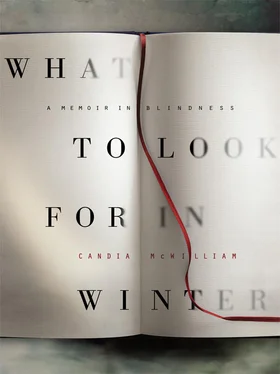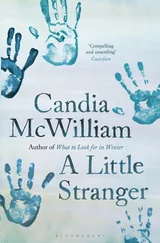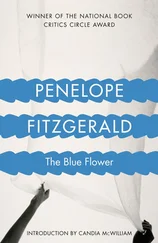The school train started at Waterloo and ended at Sherborne. For some happy reason, one summer day when we were in our A-level year, it dawdled at Basingstoke. We were told that we might go and purchase refreshments at the station buffet. We were not yet changed into our school uniform, and no one in their right mind would want to challenge Katie’s raised eyebrow. We purchased two pork pies and two miniatures of brandy. Brandy is rage and turmoil to me, gin the taste of isolation.
Otherwise strong drink hardly made its appearance at Sherborne, though there was a rebarbative cocktail offered by the headmistress to those girls considered made of the right stuff to meet visiting preachers such as Sir Robert Birley, formerly headmaster of Charterhouse and Eton. Katie and I were chosen for this privilege and liked him a lot. Neither of us felt the same about Dame Diana’s refreshing sherry, tomato and orange juice cocktail that was the speciality at White Lodge, the headmistress’s house.
In the first weeks at Girton, should someone have asked me what was wrong, I would have replied that I was simultaneously anxious and bored. I seemed frozen to the spot. I couldn’t leave my room. In my room was a bottle of sherry. Everyone knew that undergraduates offered one another small glasses of sherry. I drank the bottle on my own and went to sleep. I imagine that this sleep will have been the first blackout of my life, and that having glimpsed this option, my brain’s biochemistry was on the very tentative lookout for more.
There was a bus that took Girtonians into town for lectures and seminars. I ended up sleeping on the floors of my patient friends, Anthony Appiah the most patient of all, playing me his records of Marlene and Mahler and Noël Coward and allowing me to cramp his love life.
Of course there were some friends from school. Edward Stigant, descendant of the Archbishop Stigand on the Bayeux Tapestry, was reading History at Christ’s under Professor Jack Plumb. Edward looked like a very naughty Russian girl. He had the profile and eyelashes of a Borzoi and was short, lissom and bendy. His gift with languages was prodigious. When we did our examinations for Oxford and/or Cambridge, which were in those days separate from A levels, there was a translation paper from which you had to choose two longish passages from among a dozen or so languages to translate into English. Edward had done them all, with time to spare, and waltzed off with a scholarship. This took courage. His older brother had earlier achieved distinction at the same college and taken his own life while still at university.
Edward did not live very much longer than that brother, but oh the delightful nuisance he caused in his life. He was completely kind and, of course, when we first met at the school classics club, ‘The Interpretes’, which was a decorous means of meeting boys, I lapped him up. He was having an affair with a Turkish air stewardess at the time. This strange reversion to what might be thought of as deviancy in the context of someone quite so camp, also struck him during the week of our Finals, when he fell head over heels in love with a magnificent girl, and sent her a dozen red roses every single day. They both emerged with congratulatory firsts.
I’m astonished that I have any friends from Cambridge. I was a dilatory worker, a shocking shirker of essays and supervisions, and I did not understand that it was perfectly possible to say no at any stage of the transaction should you be invited out by a member of the opposite sex. I had a powerfully developed sense of my own repulsive ness that cannot have been helped by the fashion for platform shoes that coincided with these years. Thus, when I did leave F6, I was six and a half feet high and, in some senses, quite unstable. There were three dons at Girton whom I feared and respected, though they might not have guessed it: Jill Mann for Chaucer, who spotted me at once for a coaster; Gillian Beer, who has, despite it all, become a friend; and Lady Radzinowicz, who, with her dachsund Pretzel, taught me Milton and Spenser. I was so nervous about leaving F6 and actually getting on to the missile-launcher bus for central Cambridge, that I attended relatively few lectures, though I developed a fondness for Professor J.A.W. Bennett who must have been about twelve hundred years old by then. It was also compulsory, for reasons of cool as well as literary curiosity, to attend the lectures of the poet J.H. Prynne. I adored watching him take words to bits.
One day a vision entered the lecture theatre. Of course I had seen beauties before and there were even two at Girton, but this was different. She was attired in a coat of a red fox and it was clear that her electrical and crackling head of hair weighed more than her etiolated and fashionably attired body, from her Manolo Blahnik boots to her Joseph jeans and her Sonia Rykiel jersey (I was a Vogue reader and could do the semiotics). We had a catwalk model among us and she was one big cat: Tamasin Day-Lewis.
Tamasin was at King’s, a college full of interesting people who were not Girtonians. They included descendants of old Bloomsbury, precociously brilliant philosophers, a girl who lived with a man who had already sired children, and my beloved friend Rupert Christiansen, who allowed himself four minutes off work between breakfast and lunch and five in the afternoon for the ingestion of a cheese scone. Every vacation Rupert worked in the Arts Council bookshop in Sackville Street. He had one, orange needlecord, suit. Rupert is colour blind. He saved up every penny to go and stand in the gods at Covent Garden.
It says much for Rupert that he took me out to see the ballet La Bayadère . After three days’ thought I dressed for this occasion in eight-inch cork platforms, white tights, a wraparound white cheesecloth skirt, a scarf tied across my by now ultra-skinny chest and an enticing new bubble perm inspired by the film of The Great Gatsby with Mia Farrow and Robert Redford. Rupert is a good six foot two and he weathered this fearful first date to become my daily correspondent, my test of decency, my measure of honour.
It was during Prelims that I realised that I could speak in tongues, or rather that I could do so if drunk enough and if the drink were whisky. Today I do not drink at all or I would be dead, and when people ask, ‘Do you miss anything about drinking?’ I can with perfect truth say no. But I do miss the smell of those island malts, that are nothing more or less than the smells of the islands themselves, of sea, of kelp, of heather, of peat, of wrack, of mist, of slow, slow burning.
I gave a party at the end of Cambridge, for my twenty-first birthday, for the friends I had somehow made. I sent out invitations on which I had drawn a bough with golden apples. The words written below invited each recipient to help me take my golden bow. The house in which the party took place belonged to none other than my present landlord, to whom, that first time, I was a lousy lodger, borrowing his tank tops, sending telegrams via his phone bill and continually introducing cats into the ménage. I remember Peggotty and Portnoy, who was a Siamese and therefore always complaining. In this may be glimpsed something of the golden character of Niall Hobhouse, who was Anthony Appiah’s cousin. To my twenty-first birthday party, the golden bow, I wore a jumpsuit made of paper that I had sprayed gold, and gold cowboy boots. I had not neglected to spray my hair gold.
For some reason, just as the party got going, Katie told me to cook some crumpets. She talks so quickly that I frequently mishear. I have before now jumped out of a boat when she was just telling me to ‘go about’. I set to with the crumpets and continued being my entertaining self, welcoming my friends and no doubt swigging along. For the record, Katie tells me that she was in Singapore on this occasion; so memory casts its dramas.
Читать дальше











